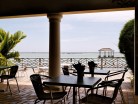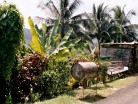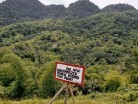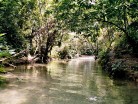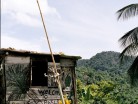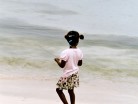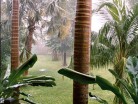Jamaica (pronounced /dʒəˈmeɪkə/) is an island nation of the Greater Antilles, 234 kilometres (145 mi) in length and as much as 80 kilometres (50 mi) in width situated in the Caribbean Sea. It is about 145 kilometres (90 mi) south of Cuba, and 190 kilometres (120 mi) west of the island of Hispaniola, on which Haiti and the Dominican Republic are situated. Its indigenous Arawakan-speaking Taíno inhabitants named the island Xaymaca, meaning the “Land of Wood and Water”, or the “Land of Springs”. Formerly a Spanish possession known as Santiago, it later became the British Crown colony of Jamaica. It is the third most populous anglophone country in North America, after the United States and Canada. It remains a Commonwealth realm with Queen Elizabeth II as Head of State.
Jamaica is the third largest island in the Caribbean. The island is home to the Blue Mountains inland and is surrounded by a narrow coastal plain. Most major towns and cities are located on the coast. Chief towns and cities include the capital Kingston, Portmore, Spanish Town, Mandeville, Ocho Ríos, Port Antonio, Negril, and Montego Bay. The Kingston Harbour is one of the largest natural harbours in the world. There are several tourist attractions scattered across the country, including Dunn’s River Falls in St. Ann, YS Falls in St. Elizabeth, the Blue Lagoon in Portland, and Port Royal, which was the site of an earthquake that helped form the island’s Palisadoes.
The climate in Jamaica is tropical, with hot and humid weather, although higher inland regions are more temperate. Some regions on the south coast, such as the Liguanea Plain and the Pedro Plains, are relatively dry rain-shadow areas. Jamaica lies in the hurricane belt of the Atlantic Ocean; as a result, the island sometimes experiences significant storm damage. Hurricanes Charlie and Gilbert hit Jamaica directly in 1951 and 1988, respectively, causing major damage and many deaths. In the 2000s, hurricanes Ivan, Dean, and Gustav also brought severe weather to the island.
